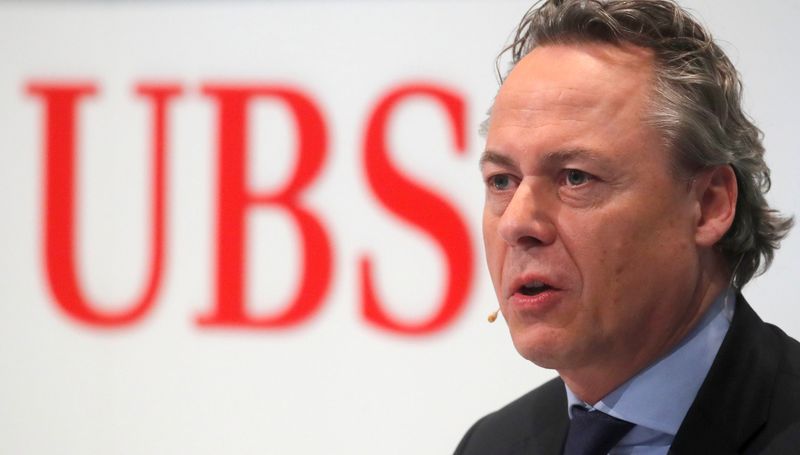By Brenna Hughes Neghaiwi and Toby Sterling
ZURICH/AMSTERDAM (Reuters) - A Dutch court on Wednesday ordered a criminal investigation into the role UBS Chief Executive Ralph Hamers played in ING Group (NYSE:ING)'s failure to crack down on money laundering when he was head of the Dutch bank.
The investigation comes only a month after Hamers became head of UBS, the world's largest wealth manager, at a time when it is trying to move on from a legacy of costly court cases over money laundering and tax evasion.
The Swiss bank said Hamers would stay in his role while prosecutors conducted their investigation and that extensive due diligence, including an independent assessment of the Dutch anti-money laundering issues, had been conducted before he was hired.
"I have full confidence in Ralph's ability to lead our firm," UBS Chairman Axel Weber said. "We were fully satisfied with the results of these independent evaluations and the assessment of the Dutch prosecutor at the time."
The Swiss banking industry is trying to rebrand itself as a stable and trustworthy financial centre after global pressure effectively brought an end to a centuries-long policy of banking secrecy, but the investigation into Hamers, as well as the departure of Credit Suisse (SIX:CSGN)'s chief executive this year over a spying scandal, risk tarnishing its efforts.
Swiss financial market supervisor FINMA said it also addressed the Dutch anti-money laundering issues in its review of Hamers' nomination and confirmed that he was "fit and proper" to take on the role.
ING agreed with Dutch prosecutors in 2018 to pay 775 million euros ($940 million) to settle a case over failing to spot money laundering and other criminal activities by its clients.
Hamers ran ING, the largest bank in the Netherlands, from 2013 until June this year, when he left to join UBS.
Investors were unhappy with the 2018 decision because it failed to hold any individuals responsible. That leading to the ruling on Wednesday in which the court of appeal in The Hague said while the settlement still stood, prosecutors must investigate the role Hamers played.
"The court considers it important that in public criminal proceedings the standard is confirmed that managers of a bank do not go unpunished if they have actually led prohibited conduct," the ruling said.
'INSUFFICIENT EVIDENCE'
Hamers was considered a bold choice for UBS as he came from outside the Swiss establishment and did not have executive experience in the staid world of wealth management.
However, his appointment was lauded by UBS and many observers as a chance for the bank to orient itself towards a more digital future, as Hamers had successfully implemented a digital turnaround at ING.
ING, which is predominantly a retail bank, welcomed Wednesday's court ruling upholding its 2018 settlement and said it continued to "enhance the management of compliance risks".
Prosecutors said at the time that shortfalls in oversight had largely resulted from ING's lack of attention for compliance risk management and could not be blamed on any individual.
The new investigation is now likely to examine to what extent Hamers knew about the money laundering offences and failed to stop them. Hamers has not been charged with any offences at this point.
The prosecution of a current or former chief executive of a major Dutch company was very rare, prosecutors said.
"We had earlier in the same case decided that there was insufficient evidence to prosecute this man, and to justify this prosecution," a spokeswoman for the Dutch financial crimes prosecutor's office said.
"(But) the Appeals Court has decided that the former chief should be prosecuted. So we will follow out that order," she said, adding that she could not yet give a timeline for the investigation.

($1 = 0.8245 euros)